Boats
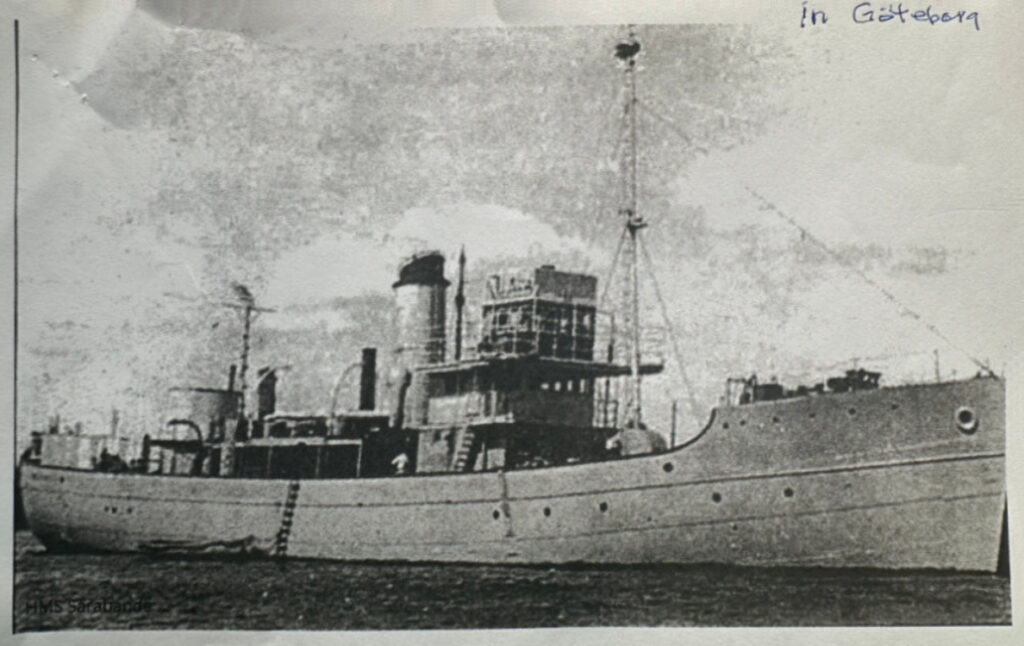
Sarabande in Göteborg, Sweden
sarabande
The Sarabande was a trawler minesweeper built in 1940 for the British Royal Navy. During World War II the ship operated off the coast of West Africa, escorting merchant ships. It was 161 feet long (50 meters) and 27.5 feet wide (8.4 meters). The 530-ton ship was equipped with a steam engine, similar to the refugee ship S.S. Walnut, which crossed the Atlantic in 1948.
In 1947, the Sarabande was sold to Norwegians and then to Sten Olsson, who became a Swedish freight shipping magnate. In spring 1949, a group of Latvian refugees who wanted to leave Sweden purchased the ship through the Compania Maritima Sarabande, Honduras, for 108,000 Swedish kronor, and refurbished it in Göteborg.
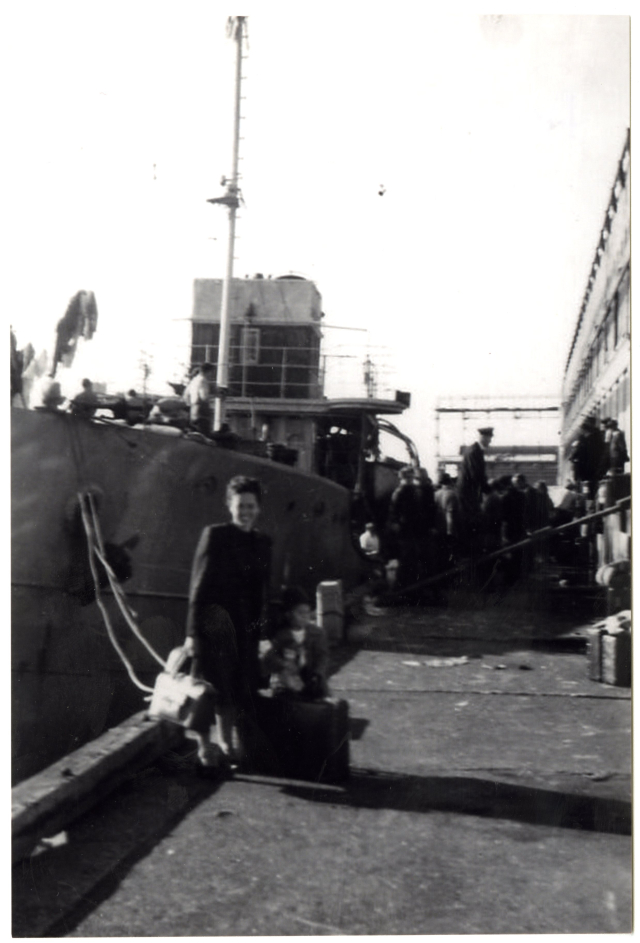
Passengers Hermine and Aili Suurallik in front of the Sarabande after arriving in Halifax.
On July 25, 1949, the Sarabande departed Göteborg under a Panamanian flag with 258 people on board: 103 Latvians, 90 Poles, 50 Estonians, six Finns, and others who had each paid 850 Swedish kronor for passage. About 50 of the refugees were children. Harald Männik from Käsmu, who had previously commanded an alcohol smuggling flotilla in Estonia, was the boat’s captain. The crew was also Estonian.
“A cold chill ran down my spine because I did not believe that the wreck I was looking at would be a ship which would carry us over the broad Atlantic.” Passenger Valda Zvanitajs when she saw the Sarabande
The Sarabande arrived in Cork, Ireland, on July 31 with engine problems due to poor quality coal that had burned through the boiler grates. Välis-Eesti reported October 2, 1949, that townspeople came out to the dock to welcome the ship, bringing food, clothing, and sweets. The city’s mayor also visited three times. The boat’s owners asked the Red Cross to help them purchase coal, which was rejected, but instead the organization paid to replace the ship’s burned out boiler grates. Passengers collected funds from among themselves to buy the coal. The ship took on five more passengers who had been on an earlier Viking ship that had stopped in Cork. When the Sarabande departed on August 6, more than 200 town residents gathered on the pier, praying, singing, and waving farewell.
Välis-Eesti reported that the ship was very overcrowded and that the food on board was poor quality. The captain decided to sail north of the normal sea lanes to avoid Russian patrols but this increased the danger of colliding with icebergs. At first the sea was calm, but fierce storms in the middle of the Atlantic tossed the ship up and down, lifting the stern out of the water and making the propellers spin wildly. Many of the passengers were seasick until they reached Halifax, Canada, on August 19, 1949.
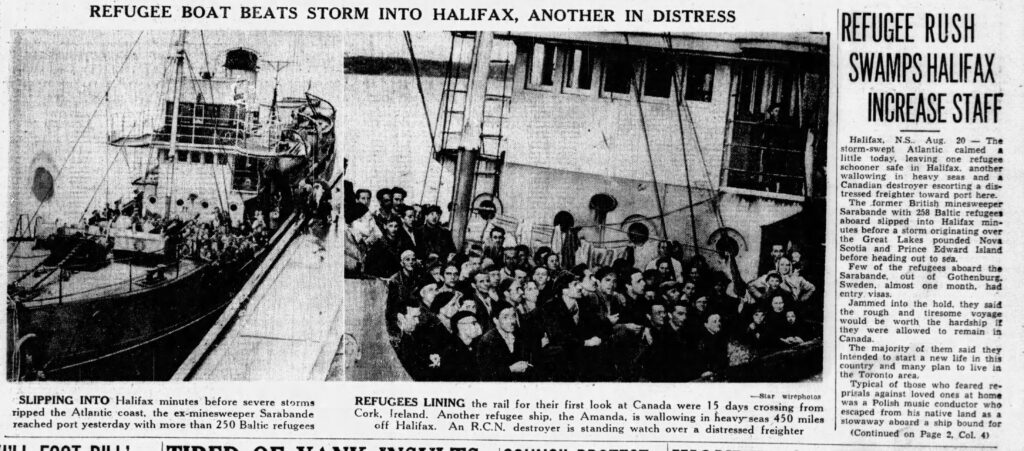
The Toronto Star, August 20, 1949
The Sarabande entered the port flying the Latvian flag after a 25-day journey from Sweden.
Stockholms-Tidningen Eestlastele reported via the Montreal Daily Star that Männik and August Petravis-Zarins, the ship’s agent, were prosecuted for bringing the visa-less refugees to Canada in violation of the Immigration Act.
The offense carried a maximum penalty of six months’ imprisonment, plus a fine. The men pleaded guilty and asked to not be deported since that would have meant a death sentence. On December 15, 1949, the last of the refugees from the Sarabande were granted permission to stay in Canada. Männik and his wife and Petravis-Zarins and his family were released from custody after each man paid a $400 fine for bringing the refugees to Canada illegally.
The Sarabande was sold to new owners who used it as a coastal vessel on the St. Lawrence River, along the Canadian coast, and in the Caribbean. It was renamed the Guard Maveline and was used to service ships in distress.
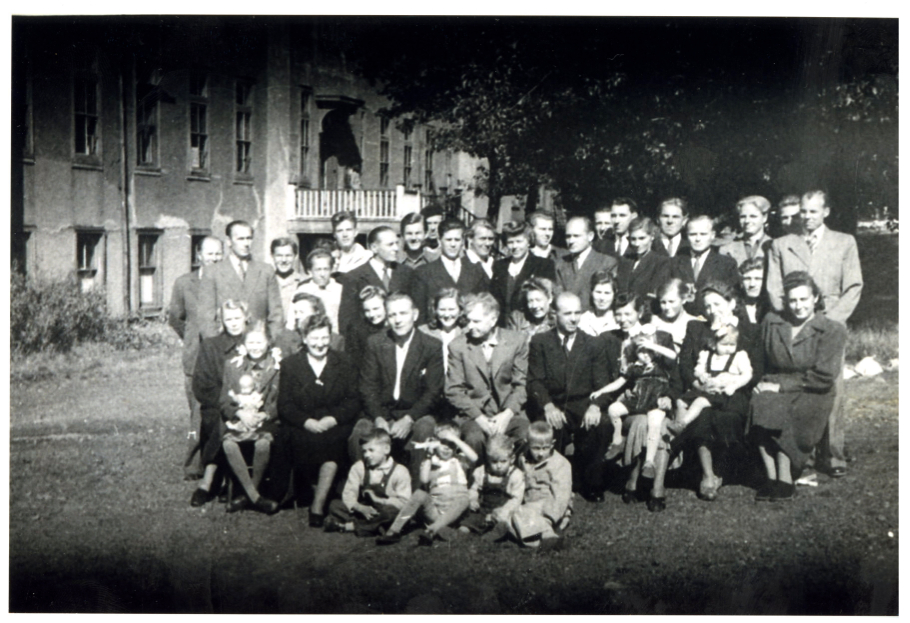
Refugees from the Sarabande in at Halifax detention camp.
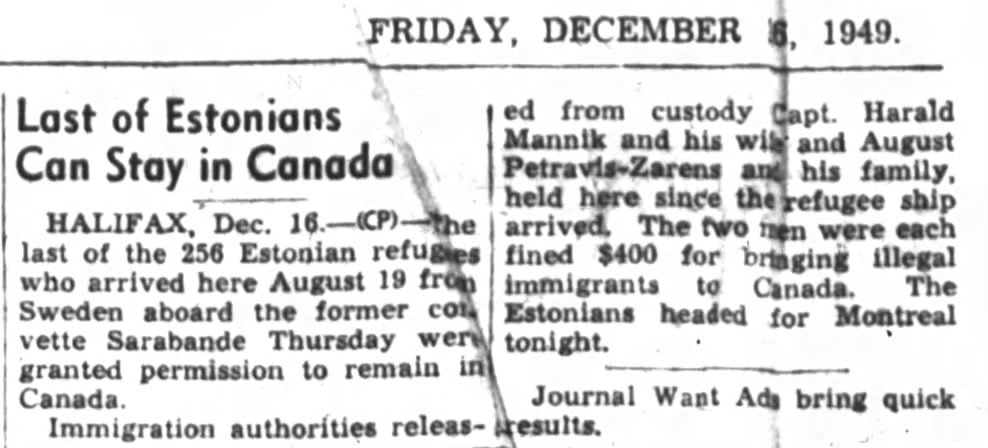
The Ottawa Journal, December 16, 1949

Passenger list from the Sarabande

Passenger list from the Sarabande

Passenger list from the Sarabande

Passenger list from the Sarabande
Photographs and documents reproduced with permission: Hermine and Aili Suurallik in front of SS Sarabande in Halifax, August 20 1949 Canadian Museum of Immigration at Pier 21 (DI2019.39.6); Estonian refugees in a Halifax holding camp, 1949 Canadian Museum of Immigration at Pier 21 (DI2019.39.7); Passenger list and ship photograph courtesy of Valdemars Zvanitajs.
